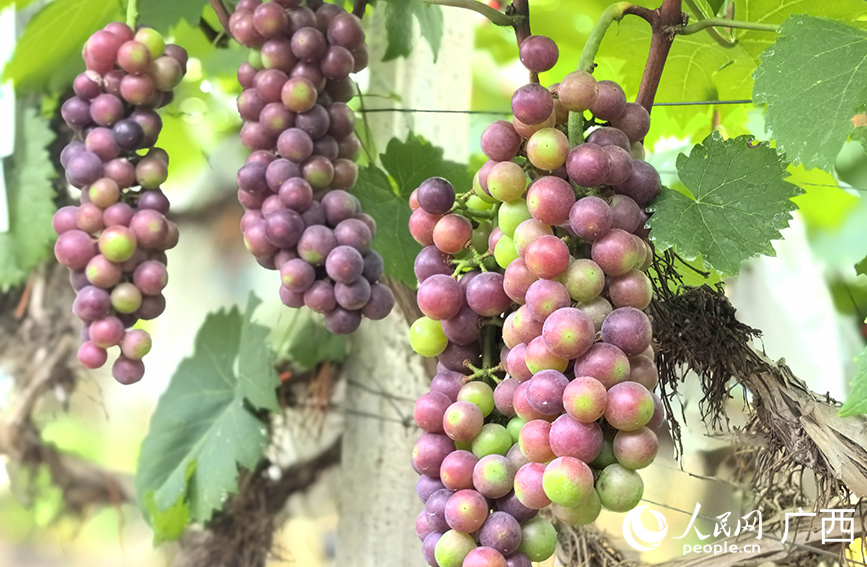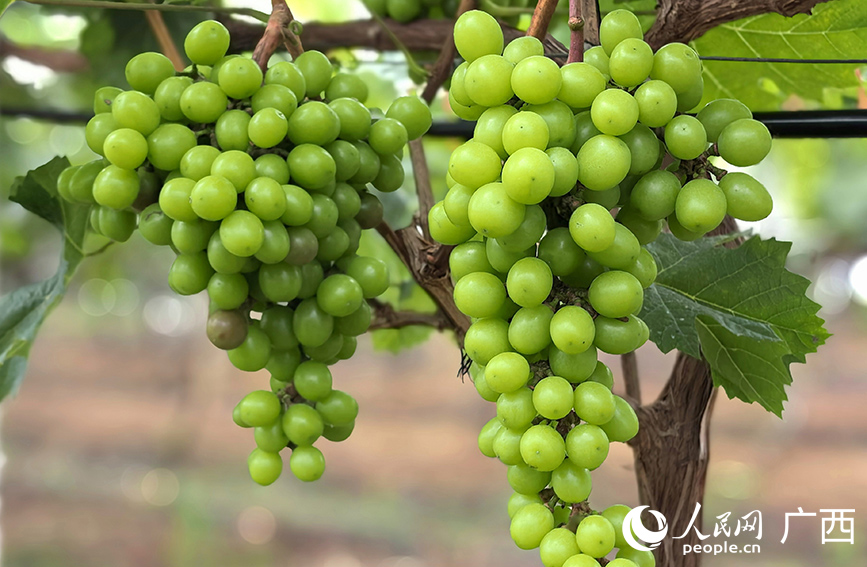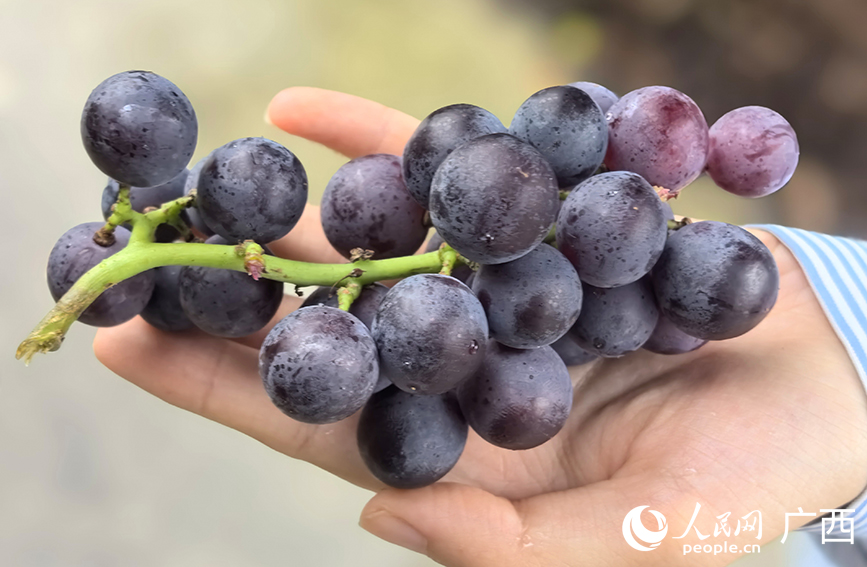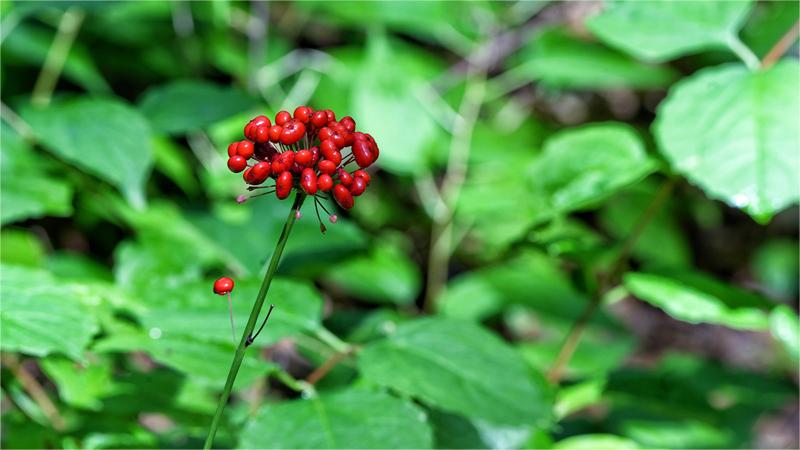Small village in China's Guangxi sees bountiful harvest of grapes

Photo shows grapes in a grape planting base in Gucun village, Wushan township, Xingbin district, Laibin city, south China's Guangxi Zhuang Autonomous Region. (People's Daily Online/Fu Huazhou)
In the golden month of August, the air is filled with the sweet scent of ripening fruits.
Upon entering Gucun village, Wushan township, Xingbin district, Laibin city, south China's Guangxi Zhuang Autonomous Region, one is greeted by clusters of plump grapes hanging heavily from the vines. The air is thick with the rich fragrance of fruit. Farmers move between the rows of grapevines, busy picking, weighing, and boxing their harvest, their faces lit up with the joy of a bountiful season. Visitors carry baskets through the vineyards, handpicking the lustrous grapes and savoring nature's purest gift.

A villager checks on the growth of grapes at his orchard in Gucun village, Wushan township, Xingbin district, Laibin city, south China's Guangxi Zhuang Autonomous Region. (People's Daily Online/Fu Huazhou)
The bustling activity of the farmers and the laughter of visitors together paint a harmonious picture of rural life.
Gucun, once a poverty-stricken immigrant village in Xingbin district, has embraced prosperity by developing characteristic industries including grape planting.

Photo shows a grape planting base in Gucun village, Wushan township, Xingbin district, Laibin city, south China's Guangxi Zhuang Autonomous Region. (People's Daily Online/Fu Huazhou)
Leveraging the village's sound climate conditions, a retired agricultural expert of the autonomous region's department of agriculture and rural affairs returned to the village to help villagers develop the grape industry.
Gucun built the grape planting base in 2008 and established a grape cooperative in 2014, promoting the standardization and branding of grapes.

Photo shows grapes in a grape planting base in Gucun village, Wushan township, Xingbin district, Laibin city, south China's Guangxi Zhuang Autonomous Region. (People's Daily Online/Fu Huazhou)
"In 2016, we registered a trademark for Gucun grapes and received the certification of pollution-free products. Villagers' income has increased year by year. Planting grapes alone ensures that their per capita income exceeds 10,000 yuan ($1,410.2)," said Lu Dinghui, an official of Gucun village.
At present, the planting area of the grape planting base has surpassed 600 mu (40 hectares). The output value of grapes at the planting base is expected to reach 5 million yuan this year.

A tourist shows freshly harvested grapes in a grape planting base in Gucun village, Wushan township, Xingbin district, Laibin city, south China's Guangxi Zhuang Autonomous Region. (People's Daily Online/Fu Huazhou)
"My family planted 8 mu of grapes. By planting grapes, I built a house and bought a car. My life is getting better," said a villager in Gucun.
Thanks to strong support from relevant departments, Gucun, which is close to a national wetland park, has leveraged its geographical advantages to develop ecotourism and rural tourism. It has improved tourism facilities and grown other fruits in addition to grapes, attracting throngs of tourists to go sightseeing and experience fruit picking.
Photos
Related Stories
- Shine Muscat grapes sweeten villagers' lives in S China's Guangxi
- In pics: bountiful harvest of grapes in E China's?Jiangsu
- Grape growing sweetens villagers' life, builds careers for "new farmers"
- Feature: Grape Bank nurtures "seeds of hope" for Lebanese farmers
- Farmer in E China's Anhui rakes in bountiful profits thanks to grape planting
- Highly-coveted Shine Muscat grape variety grown in China's Xichang reaches tables across country thanks to e-commerce
- Grape fields enter harvest season in south China's Guangxi
Copyright © 2024 People's Daily Online. All Rights Reserved.









